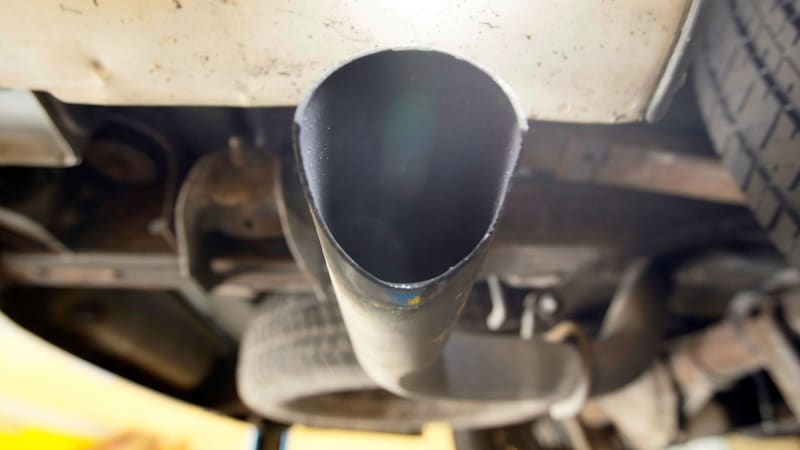Republican attorneys general from 25 states on Thursday sued the U.S. Environmental Protection Agency to block rules intended to reduce planet-warming emissions from cars and light trucks and encourage electric vehicle manufacturing, arguing the agency exceeded its legal authority.
The lawsuit challenging the regulations for passenger vehicles, finalized on March 20 by President Joe Biden's administration, was filed by attorneys general from states led by Kentucky and West Virginia in the U.S. Court of Appeals for the District of Columbia Circuit.
The EPA rules aim to cut fleetwide tailpipe emissions for cars and light trucks by nearly 50% over 2026 levels in 2032, and reduce greenhouse gas emissions by 7.2 billion tons through 2055.
Kentucky Attorney General Russell Coleman said the rules would harm the American economy, threaten jobs and raise prices while undermining the U.S. electricity grid. Coleman also said there is very little consumer interest in electric vehicles in his state.
Republican state officials have said the rules amount to an attempt by the administration to transform the American passenger vehicle market improperly through strict rules that make it difficult for manufacturers to not go electric.
"The Biden administration is willing to sacrifice the American auto industry and its workers in service of its radical green agenda. We just aren't buying it," Coleman said.
West Virginia Attorney General Patrick Morrisey called the rules "legally flawed and unrealistic, to say the least."
The EPA declined to comment.
The regulations are among the most significant environmental rules implemented under Biden, who has made tackling climate change a key pillar of his presidency. The EPA has forecast that between 35% and 56% of new vehicles sold between 2030 and 2032 would be electric under the rules – a range that reflected the flexibility the agency has said automakers have to pursue different pollution-cutting technologies.
Republican state attorneys general during the public comment period before the rules were finalized had said that they go well beyond the EPA's authority under the landmark anti-pollution law called the Clean Air Act, and amount to a "top-to-bottom attempt to restructure the automobile industry."
After resistance by autoworkers and the auto industry, the final version of the regulations was scaled back compared to an earlier proposal in order to give automakers more flexibility in meeting the emissions reduction goals. The EPA gave automakers more freedom to meet emissions standards with gas-electric hybrids, which many environmentalists have opposed as a half-measure that delays the EV transition.
The EPA said the final rule cuts emissions by 49% by 2032 over 2026 levels compared with 56% under its previous plan. EPA chief Michael Regan said the rule impose "absolutely no mandate" on manufacturers to adopt electric vehicles.
Other states that joined the suit included: Alabama, Alaska, Arkansas, Florida, Georgia, Idaho, Indiana, Iowa, Kansas, Louisiana, Mississippi, Missouri, Montana, Nebraska, New Hampshire, North Dakota, Ohio, Oklahoma, South Carolina, South Dakota, Utah, Virginia and Wyoming.
The EPA on March 29 separately said it was finalizing tighter tailpipe emissions standards for heavy-duty vehicles like semi-trucks and buses, but those regulations were not part of the lawsuit.
The lawsuit is the latest example of Republican attorneys general turning to the courts to challenge various aspects of the Biden administration's climate agenda.
Republican-led states also have challenged the U.S. Securities and Exchange Commission's corporate climate disclosure rules, the U.S. Energy Department's pause on approvals for new liquefied natural gas export facilities and EPA rules toughening standards for air pollution, among other things.






























